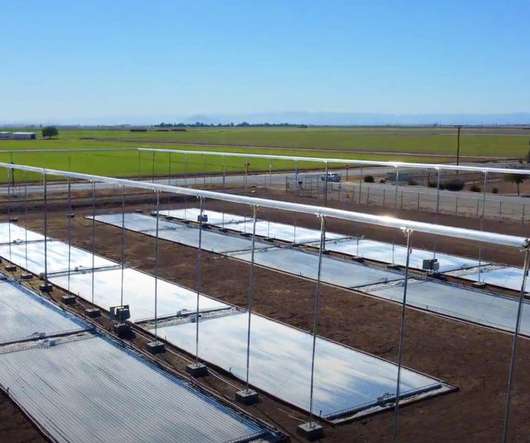Convert Oil Wells to Solve the Solar Storage Problem
Cars That Think
MARCH 14, 2022
Solar batteries work as a short-term solution, but not when it comes to long-term storage or to power, say, an entire city. A possible answer, though, might lie in oil wells. Solar energy and oil wells might sound like an odd combination, but the principle is similar to how geothermal energy would be harnessed.




















Let's personalize your content